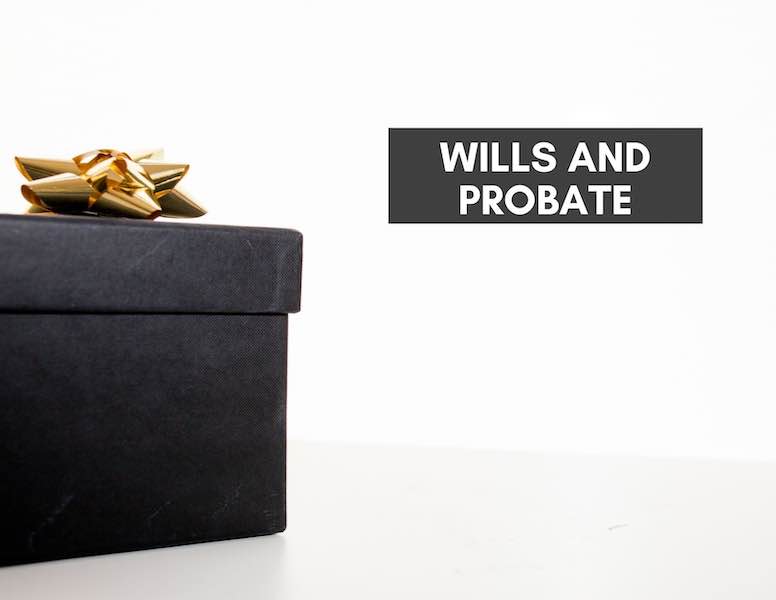Strings Attached – Conditional Gifts Vs Testamentary Trusts
by Michelle Chew Ai Phin ~ 3 August 2021
In our previous articles, we have touched on what are conditional gifts and testamentary trust and the substantive law behind the same. In this article, we will be exploring on the pros and cons for each.
It should first be noted that the main distinguishing factor between both Conditional Gifts and Testamentary Trust is that condition precedents in Conditional Gifts merely exist to ensure the person intended to receive an interest will be able to do so only when something is done, whereas Testamentary Trusts focuses on the manner of distribution for beneficiaries. Hence, in considering the application for both Testamentary Trust and Conditional Gifts, one must first determine whether those intended to be named in the Will are to receive interests/benefit to the property as beneficiaries or not.
Testamentary Trust
| Pros | Cons |
|---|---|
|
Assets preserved This can prevent assets from being dissipated prematurely as trustees will have the discretion to whether assets should be should or retained to generate future income for beneficiaries. Enables provisions of adequate cash or liquid assets to cater for needs in carious situations such as final expenses, medical expenses before death, cost of estate administration, debts and liabilities, contingent liabilities, unsettled income tax, losses due to forced sale of assets and losses due to liquidation of business interest. Control over funding Provision for beneficiaries with particular needs, a testamentary trust allows you to provide financial security for your child with someone else who you can trust to actually control the funds. Protection against certain types of beneficiary, (eg. spendthrift, drug addicted or other beneficiary types where the distribution of funds to the beneficiary needs to be controlled or the beneficiary’s access to the funds limited). Provides means for assets to be assigned to minor children to be protected until the children are capable of managing these assets. He can appoint guardians to look after the interest of his minor children. He has the powers to create a testamentary trust for his children’s education, his elderly parents’ living expenses or the charities of his choice. He can also give directions as to his funeral arrangements (although this is rarely done due to its impracticality). As such distribution process may be faster as everything is set in stone. Simplicity |
Maintenance costs Handling of the trust might still involve significant legal fees, which are deducted from the principal of the estate. Trustee Trustee is required to regularly meet with the probate court, in most jurisdictions at least annually. The trustee must prove that the trust is handles in a responsible manner. The trustee may encounter some emotional attachment and legal liability when handling the trust. The designated trustee has the option to turn down the role. That can mean that the probate court will name someone else to be the trustee. The trustee could end up being a complete stranger in some cases. Hence, it is important to discuss plans with prospective trustees to avoid such situations. It can also be difficult for beneficiaries to bring a dishonest trustee to account |
Conditional gifts
| Pros | Cons |
|---|---|
|
Covers a wide scope allowing testator’s to practice testamentary freedom in fulfilling their wishes. If a condition precedent is not satisfied, the beneficiary receives no benefit at all as intended by the testator. Not necessary to gift assets easily to beneficiaries |
Not enforceable and practically workable should conditions not be per the requirements: illegal, contrary to public policy and uncertainty – to which uncertainty may be broad. Assets not necessarily preserved unless the condition amounts to a trust eg. donee dies. Often doesn't work as intended when not worded well and may backfire the testator’s intentions. Difficult to foresee all the possibilities resulting from the conditions. The decedent cannot respond to changes and it is difficult to set up conditions that the living cannot circumvent. |
CONCLUSION
Conditional gifts and testamentary trusts are undoubtedly useful vehicles in estate planning strategies, where both the distribution and the exact wishes of the testator can be preserved upon one’s death.
This however depends on how a testator would prefer its ‘intended beneficiaries’ to benefit from his property.
Thus, the next mammoth task is ensuring the wordings of the Will is drafted clearly and specifically with every factor considered through general contingency clauses in order to maintain the testator’s initial wishes.
-
https://matuslaw.com/advantages-disadvantages-creating-testamentary-trust/
-
https://mahwengkwai.com/faqs-on-wills-condition-precedents-and-testamentary-trusts/#:~:text=What%20is%20a%20testamentary%20trust,depending%20on%20the%20testator's%20wishes.
-
The Laws of Wills Probate Administration and Succession in Malaysia and Singapore (with cases and commentaries) by Mahinder Singh Sidhu (published by the International Law Book Series)

